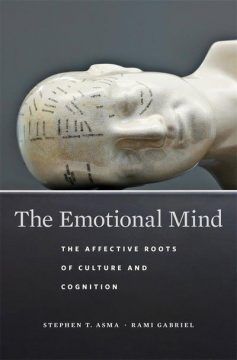Stephen T. Asma and Rami Gabriel in The Brains Blog:
 When Darwin wrote the Origin of Species, he famously closed the book with the provocative promise that “light will be thrown on the origin of man and his history.”[1] In his Descent of Man and his Expression of Emotions in Man and Animals, Darwin began to throw some of that promised light –especially regarding the emotional and cognitive similarities (homologies) of mammals.[2] But shortly after this beacon, all went dark again. The rise of positivism in the early twentieth-century, paired with the turn toward genetics, and the ascent of behaviorism effectively lowered the curtain on biological speculations about the evolution of the mind.
When Darwin wrote the Origin of Species, he famously closed the book with the provocative promise that “light will be thrown on the origin of man and his history.”[1] In his Descent of Man and his Expression of Emotions in Man and Animals, Darwin began to throw some of that promised light –especially regarding the emotional and cognitive similarities (homologies) of mammals.[2] But shortly after this beacon, all went dark again. The rise of positivism in the early twentieth-century, paired with the turn toward genetics, and the ascent of behaviorism effectively lowered the curtain on biological speculations about the evolution of the mind.
When researchers finally turned again to the mind in the mid-twentieth century, it was the computer that both sparked the cognitive sciences revolution and served as its exclusive investigative tool. Yet, for all the successes of artificial intelligence (and they are impressive), our understanding of biological minds seems to have gotten lost in the shuffle. While algorithmic digital computation produces problem-solving machines, such problem solving lacks the obvious motivational or conative goads and other affective triggers observed in real sentient animals. In fact, artificial intelligence and artificial life research seem to have lost interest, unapologetically, in the biological creature.
In our new book The Emotional Mind: The Affective Roots of Culture and Cognition (Harvard University Press, 2019), we argue that emotional systems are central to understanding the evolution of the human mind (as well as those of our primate cousins). Following the pioneering affective science of researchers like Jaak Panksepp, Antonio Damasio, and Fran de Waal, we bring together insights and data from philosophy, biology and psychology to shape a new research program –an alternative approach to the algorithmic assumptions of cognitive science and the post hoc stories of some evolutionary psychology.
More here.
